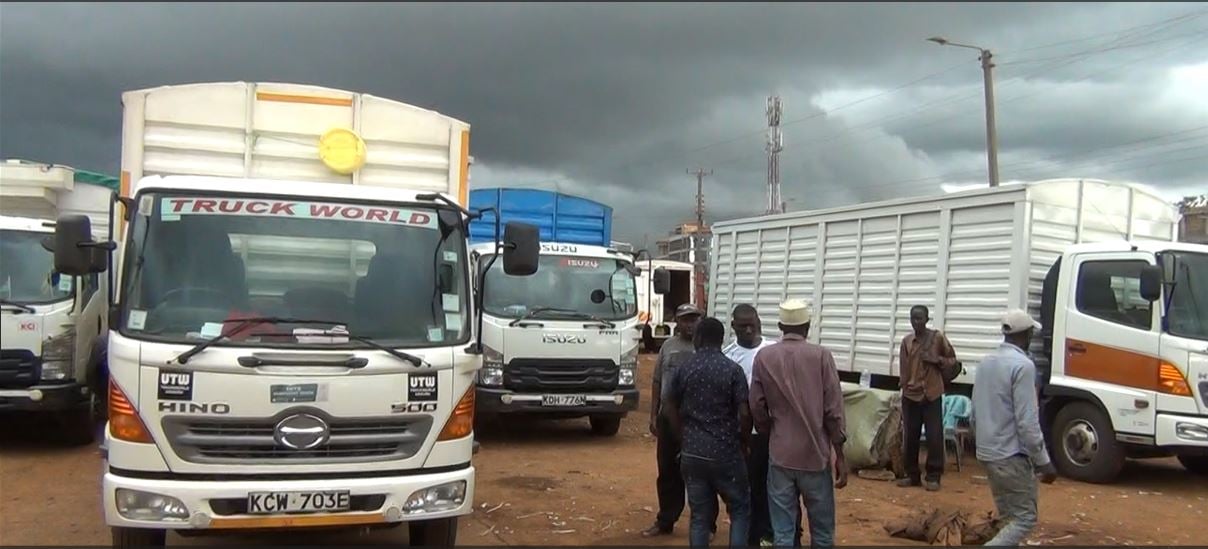
Tons of potatoes on Kenyan lorries are delayed at the border as Uganda increases a tax
At the Busia border, over thirty trucks from Kenya carrying tons of Irish potatoes are stranded after the Uganda Revenue Authority (URA) raised the withholding tax by a maximum of ten times.
When the new withholding tax policy went into effect on April 12, the tax agency in Jinja, which is roughly 120 kilometers from the border with Busia, reportedly seized another 20 trucks.
Irish potato importers from Kenya claim that each truck they send in has to pay a withholding tax of Ush120,000, or roughly $32. According to them, URA now demands that they pay Ush1,200,000 ($315) for every truck.
According to Ibrahim Bbosa, URA Commissioner for Public and Corporate Affairs, the tax agency has raised the withholding tax to 6% on each kilogramme of Irish potatoes imported into the nation, with a customs value of $0.4 (Ush1,560). As a result, the tax per kilogram rises from Ush9 ($0.0024) to Ush93.6 ($0.025).
Mr. Bbosa claims that the product was “undervalued” in the past, which is why the tax agency was looking into it.
“On Irish potatoes coming into the country, we have reviewed and increased withholding tax, but not to the value the importers are talking about,” he stated.
Regarding the prices the importers were using, he pointed out that there remained uncertainty.
The chairman of the Uganda Clearing Agents and Forwarding Association’s Jinja branch, Haji Ali Mande, claimed that the tax’s implementation, which began on April 12, was “hurriedly done” and “too high” for importers.
“The trucks that were impounded in Jinja had paid Ush1,560 on each kilogramme of Irish potatoes imported into the country, whereas URA was saying it had increased the tax from Ush9 to Ush93.6 per kilogramme,” he claimed.
“We recently learned that URA seized 15 trucks transporting Irish potatoes from Kenya, informing them that they needed to pay a new fee of Ush1,560 per kilogram rather than the previous fee of $0.058 (Ush220).” he continued.
Mr. Mande now worries that, like in the past, Kenya may strike back and place a ban on Ugandan exports.
Kenya, Uganda’s top trading partner, has recently put restrictions on a number of Ugandan products, including milk, eggs, sugar, sugarcane, and maize.
Irish potato clearing agent Mr. Yahaya Kamba, who works at the Busia border, stated that as a result of the policy, the Uganda Revenue Authority (URA) seized fifteen trucks in Jinja and issued notices to Eldoret, Nakuru, and Kisumu in Kenya, advising them not to send out trucks that have not paid the additional tax.
Paul Chuka, another border agent, stated that importers find it extremely costly due to the tax increase.
“The withholding tax drives importers into costs when you compute it with the Ush1,560 that URA is adopting; one must pay $200 fees (Ush800,000) to Uganda National Bureau of Standards, which is unaffordable,” he said.
Irish potato importer Samuel Jumba, who is situated in Kisenyi, Kampala, claims that merchants are reporting losses because the goods deteriorated after being seized by the tax authority.
Another Mbale City-based importer, Mariam Milly Namwasa, claimed that the new levy was making doing business more expensive.
She added that she spends Ksh30 (about Ksh900, or $0.24) for one kilogramme of Irish potatoes. She sells each kilogram on the Ugandan market for between Ush1,500 ($0.39) and Ush2,000 ($0.53) because she has to pay for transportation. She expresses concern that she won’t be able to easily reach the market because of the additional charge on each kilogram.
The Uganda Clearing and Forwarding Association’s Secretary-General, Mr. Juma Yahaya, warned that the levy might make Irish potatoes “totally unaffordable” for Ugandans.
“We should expect to buy it at not less than Ush6,000 ($1.58) if a plate of Irish potato chips has been available for Ush3,000 ($0.79), because importers would increase the cost to the final consumer,” he stated.
Truck driver Mr. Pius Baleno claimed that due of the new tax policy, even after two days, he still hadn’t gotten his products certified to travel to Uganda.
All Categories
Recent Posts
Tags
+13162306000
zoneyetu@yahoo.com



